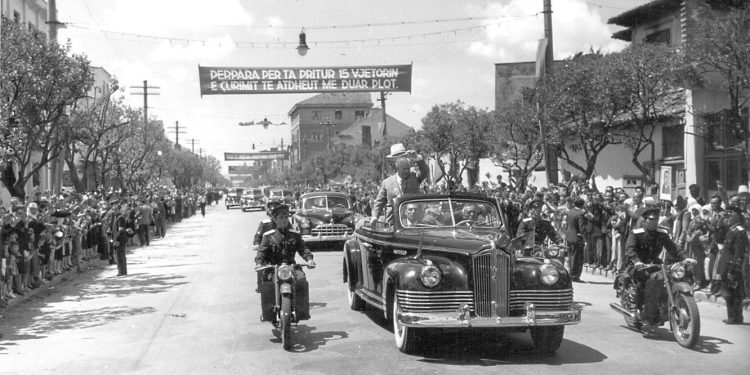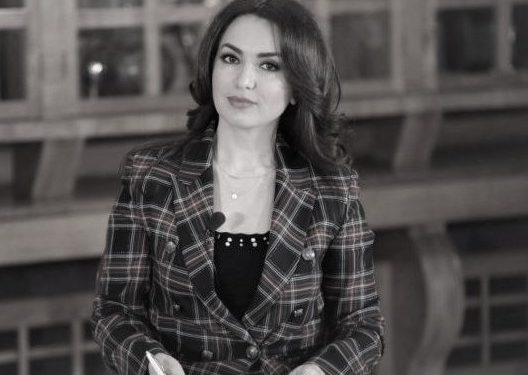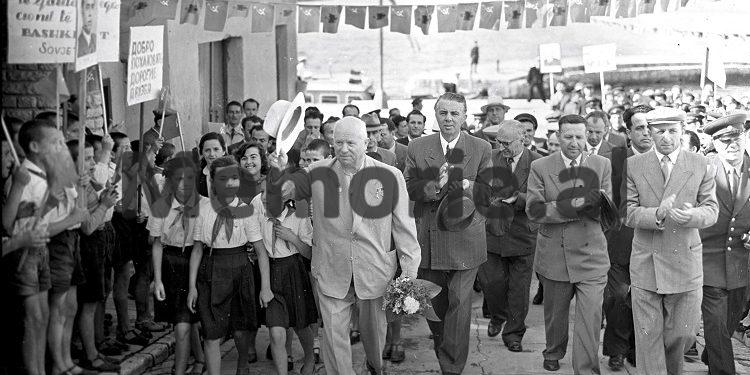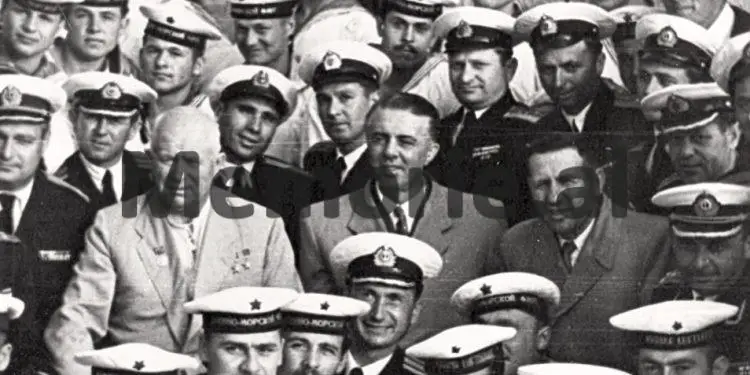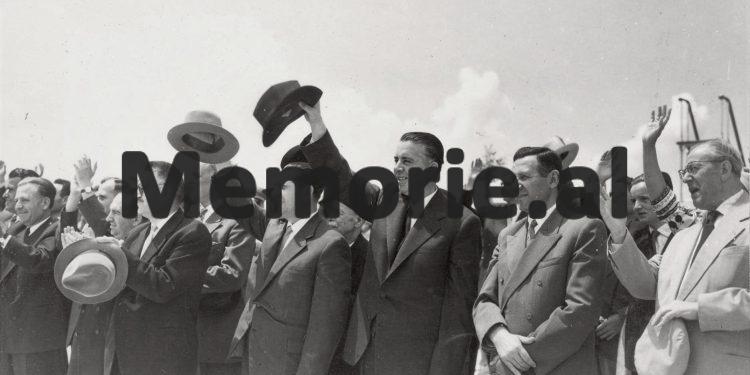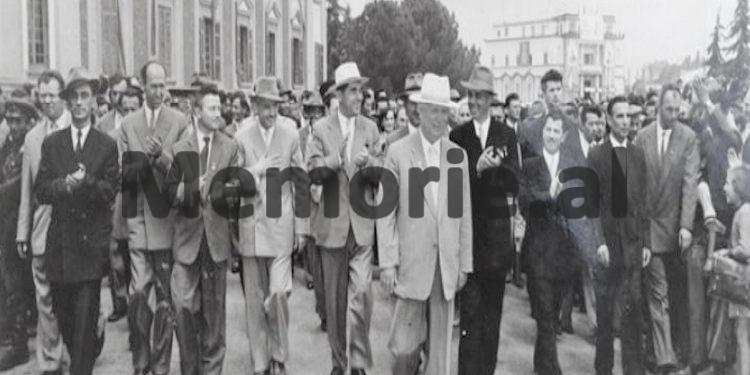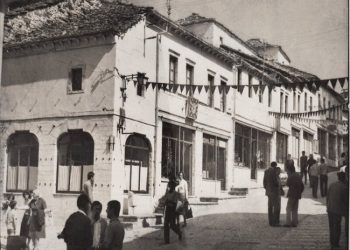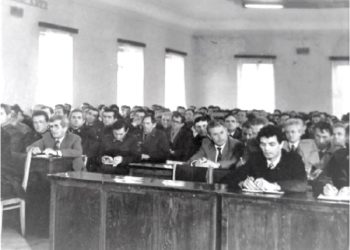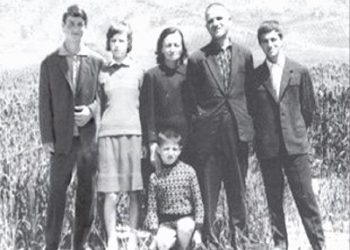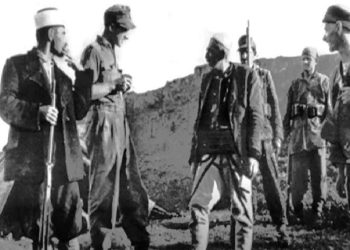Part One
Memorie.al / Written at a time of reflection and distancing himself from Stalin, in the memoirs of Nikita Khrushchev, the chapter on Albania also occupies an important place. When writing these memoirs, Khrushchev was able to perceive who Stalin really was, with whom he had been very close, but who, as he himself writes, had not managed to recognize before his death, the extent of his terrible crimes. Albania at this time had divorced the Soviets and had been thrown into the lap of China. These are time anchors that Khrushchev himself gives during his memoirs, while in the Albanian “Kujtimet”, translated by Nikolla Sudar and published by “Ombra Gvg”, there is no information about the time and circumstances when Nikita Khrushchev kept these memoirs.
In addition to these memoirs, Khrushchev also wrote an autobiography, which has not yet been translated into Albanian, in which he makes a final reflection on the communist world. However, in these memoirs, which come for the first time in Albanian, the reflection of the former communist leader on the Albanian communist world is interesting. Of course, Khrushchev does not see Albania in these memoirs as a separate factor, but in the framework of the relations of the Soviet Union with the Party of Labor of Albania and the Albanian government.
And the relations between these two countries were “exactly as required between socialist countries”, as Khrushchev writes, at least during the Stalin period, when there had not yet been a single contradiction between the two countries. But when he speaks of the period of the Albanian people’s war against the Nazis, he refers to Tito, writing something very controversial from a historical point of view, that “at that time the Albanian people had unified their energies with the Yugoslavs and side by side they had fought against common enemies – Hitlerite Germany and fascist Italy”.
Always referring to what Tito had told him, Khrushchev writes that “the Communist Party of Yugoslavia had given great assistance to the Albanian people in organizing the fight against fascism”.
When Enver Hoxha was held by a thread!
In his memoirs, Nikita Khrushchev speaks a lot about the process of democratization, the initiator of which was in fact himself in the Soviet Union, although within the communist idea of the world. As for Albania, he writes that in this country this issue took a special turn. “Our embassy colleagues at the time told me that the party’s activity for Tirana took place under great tension.
This meeting lasted several days and Enver Hoxha was kept in suspense. He was severely criticized, and the idea was even raised of replacing Hoxha, Shehu and Beqir Balluku, the whole troika. I do not remember which other party leaders were subjected to criticism during the party’s activity for Tirana.
But I am paying attention to this fact because, as it turned out, it would have had a decisive importance for the further development of relations between the Communist Party of the Soviet Union and the Party of Labor of Albania. However, Hoxha crossed the river. He, Shehu and Beqir Balluku remained in the leadership, although this event scared them to death,” Nikita Khrushchev writes in his memoirs about Albania.
In addition, Khrushchev writes that they were shocked in all directions, because they called themselves unquestionable authorities and leaders, who were irritated by those people who had dared to raise their voices in the active and shake their authority and who had not only shaken it, but as Khrushchev puts it, “almost ousted them from their leading positions.”
How would Albania be “swallowed”?!
Regarding the issue of Albania’s inclusion in Yugoslavia, Khrushchev recalls that; “when there were still very good relations between the Soviet Union and Yugoslavia and Tito enjoyed absolute trust in Stalin, I remember that in my presence, Stalin dictated a telegram to Tito, which said that further mutual relations with Albania should aim at its inclusion in the Balkan Federation.
This telegram was sent. Of course, no one in Albania knew anything about this issue. Stalin had made the idea of creating the Balkan Federation his own and often expressed this opinion in our circle”.
Further, in his memoirs on this issue, Khrushchev writes that it had begun to take shape so much that a palace had begun to be built near Belgrade for the headquarters of the new government of the Balkan Federation, which would also include small Albania, which did not yet know anything. “When I was in Belgrade, I saw that place.
A lot of reinforced concrete structures were built there, but then everything was abandoned. The inclusion of Albania in the composition of Yugoslavia was not in contradiction with Stalin’s idea of creating a Federation of Balkan States. When friendly relations with Yugoslavia were interrupted and Stalin began to hate Tito, the idea of a Balkan Federation was buried,” Khrushchev recalls.
When talking about further relations with Yugoslavia, Khrushchev nevertheless mentions Albania as the most extreme case of anti-Yugoslav policy. Such a thing had certainly pleased the Soviet Union for a while, which had even encouraged this policy of the Albanian side.
But Khrushchev thought that this position of Albania became detrimental when the Soviet Union and he himself decided to take steps towards the normalization of Soviet-Yugoslav relations. Albania was the only country that, as Khrushchev recalls, became an obstacle to the normalization of these relations.
“The leaders of the Albanian state and the Party of Labor received our proposals very badly and tried to prove that the Yugoslavs are incorrigible people, that they are not communists. All this was expressed with a malicious tone. Enver Hoxha was especially angry. He has a harsh character and when he talks about what he does not like, his face seems to tighten and he almost grinds his teeth,” Khrushchev describes Enver, in this excerpt from his memoirs.
However, Albania ultimately accepted the USSR’s proposal, and Khrushchev says that this happened because the Soviet Union convinced them, but because they saw that there was no other way out. When he further speaks about the relations between the USSR and Yugoslavia, in politics and economics, Khrushchev recalls that such a thing caused even greater disgust in Albania. “In those days we held the position of the older comrade: what to do, when they don’t understand?
But they will grow up and will understand that in reality, there is nothing to worry about here. And we clarified our position, so that the Albanians would understand us as best as possible,” Khrushchev writes. According to him, the relations of the USSR with Albania were not simply fraternal, but equal relations. The relations of the big with the small, according to him, arise when it comes to providing assistance. And in this case it was the Soviet Union, the big comrade that “had spent a lot of money to help Albania.”
Khrushchev: All the credit goes to the Soviet Union’s army
While the USSR provided aid to other countries on favorable terms, to Albania Khrushchev writes that aid was provided mainly through donations. He writes that it was the Soviet Union that took over the maintenance of the Albanian army with uniforms, food, weapons, and ammunition, all for free.
Of course, there was a reason for this and it is exactly what one imagines. The North Atlantic Treaty was created and Albania had a favorable strategic position in the Mediterranean Sea, which, as Khrushchev writes, the Soviet Union considered as the base of the socialist countries in this sea. “The question arose: Was it necessary for us to keep our army there or to create a strong Albanian army? In reality, Albania could maintain a small army in numbers, which would not be able to make any impression on the opponent.
It practically did not produce weapons. Therefore, we decided to help it materially in the creation, within its possibilities, of a large Albanian army in numbers…”, – recalls Khrushchev, adding that when the relations of the USSR with the West began to deteriorate after the war, a military conflict was not an excluded possibility.
Thanks to its position, Albania posed a serious threat to the activity of the NATO military bloc in the Mediterranean Sea. “That is why at that time we agreed with the Albanians to establish a submarine base there. Thus, the deployment of 12 submarines there was approved. Imagine this was a rather powerful military concentration – 12 submarines in the Mediterranean Sea.
Our opponents had to face such a concentration. We wanted to give these submarines to Albania. Our sailors arrived there with all the diving and repair equipment, to train the local military and, as soon as the Albanian submarine unit was created, to hand over these means to them.
Such a step testifies to the great trust, but I would say, also the great love that we showed for our Albanian friends. Albanian delegations came to us, headed on several occasions by Enver Hoxha and Mehemet Shehu. The best relations were established between us, not to mention the ordinary Albanian people”, – Khrushchev recalls.
Nikita Khrushchev: Albania, a miserable economy
Nikita Khrushchev writes in his memoirs that Albania was such a poor country that it had nothing in terms of reserves that could arouse the interest of the Soviet Union. Therefore, the economic relations between the two countries were mainly in the interest of Albania.
“Even that miserable amount of oil that Albania began to extract with our help, we ourselves bought,” – writes Khrushchev, adding that this was oil of such low quality that it was impossible to extract it on the Western market and that the USSR bought that amount of oil to repay their supplies.
He even adds that they did this because if the Soviet Union did not take it, no one else would buy this oil, which would mean that oil extraction would have to be abandoned. Khrushchev further writes that; “We have also given the Albanians tractors. Their territory is small and there is little arable land. But we wanted to help raise the Albanian economy to a modern level, to make Albania a jewel that would lure the Muslim world, especially the Near East and Africa, towards communism.
Here were our basic goals and the policies we pursued there”, – Khrushchev writes, perhaps not with great sincerity. Then he does not fail to mention the radio station, which they proposed to build in Albania and the large port that was built.
Nikita Khrushchev’s memories of his visit to Albania: “I did not notice any black clouds from Hoxha and Shehu”!
“Several times the Albanians had begged us to send a party and state delegation of the highest level on our part. It was decided that I would head such a delegation and we set off for Albania. Before we left, we informed our Albanian friends that we did not want any criticism of Yugoslavia and its leadership to be addressed publicly, in our presence.
At that time, Albania had very strained relations with Yugoslavia and was conducting an open duel against it even in the press. I was of the opinion that this was causing harm. Therefore, we discussed it among ourselves and informed Enver Hoxha that we did not want the conflict in the press between Albania and Yugoslavia to continue during the stay of our delegation in Albania. We warned them not to include us in such discussions even at rallies…!
During our visit, at rallies and other meetings, the Albanians avoided criticizing Yugoslavia. But it was clear that they were coping with it with difficulty. In conversations behind closed doors, the Albanians tried to convince us that there could be no reconciliation with the Yugoslavs, that they were not communists and all that. We could not get along with them, even though we did not support everything that was happening in Yugoslavia… During our stay in Albania, the Albanians behaved as friends and there was no friction between us…!
We spent several days there, saw their capital, visited other cities, villages and ports. Everywhere we noticed an extremely enthusiastic attitude towards the Soviet Union, towards our people, towards our party, both on the part of the Albanian workers and on the part of Hoxha and Shehu. I did not notice any black cloud that could darken the sun of friendship, under which we wanted to enjoy life and build fraternal relations between the USSR and Albania. No disagreements arose between us…!
Everything new, built there, was realized with our help, with our credit, by our specialists and workers…! Albania is a small country. But its people, numerically limited, live in an interesting geographical location, where various contradictions of Europe are intertwined, which is why its opponents are also numerous.” Nikita Khrushchev explains step by step all the political movements that marked the breakdown of relations between the Soviet Union and Albania. / Memorie.al




